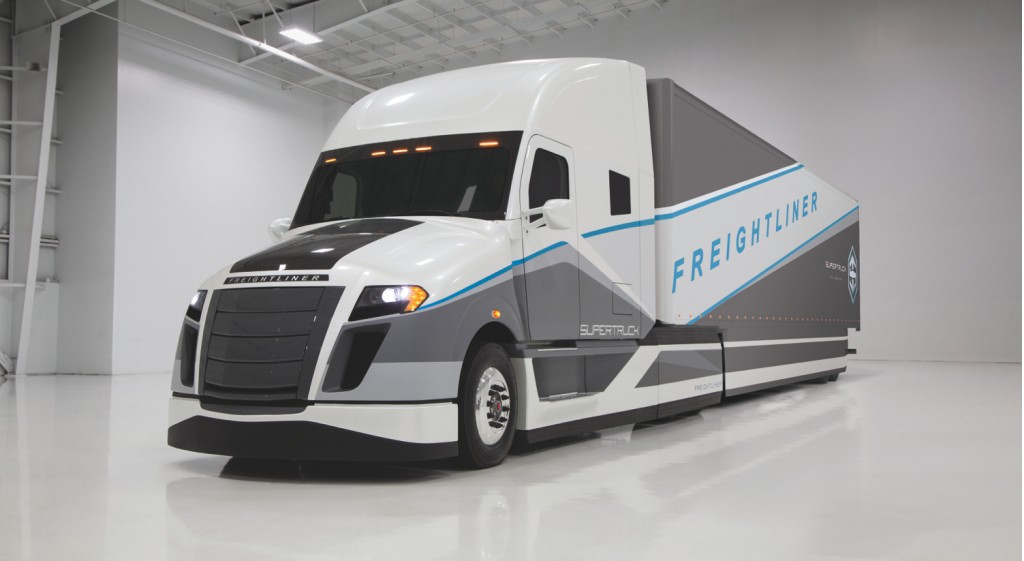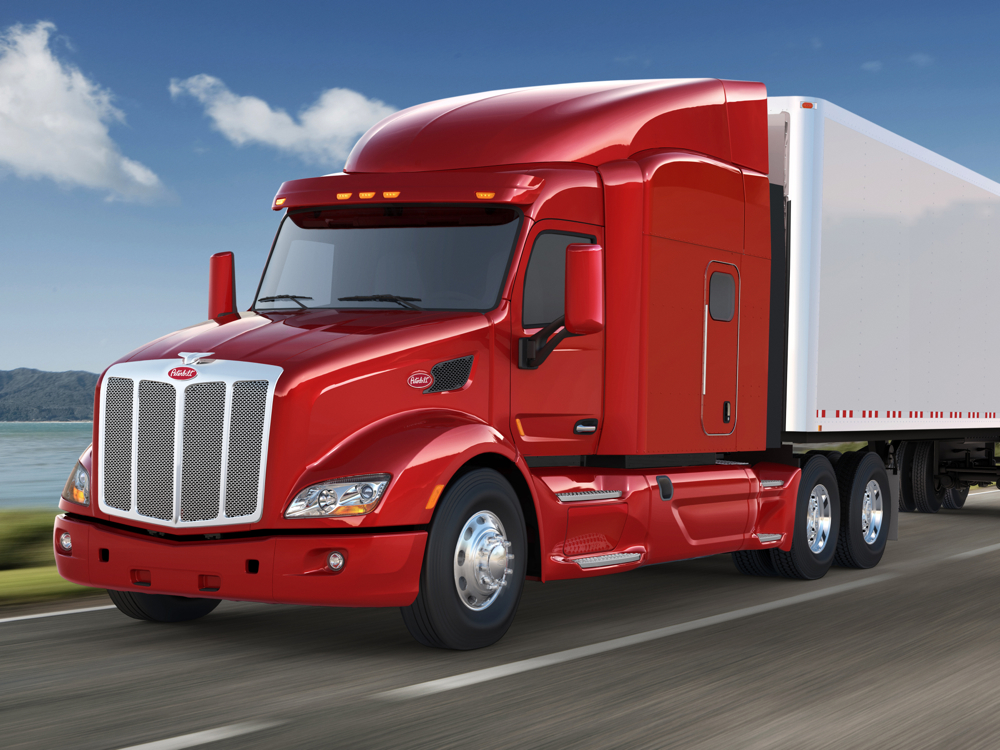The regenerative systems that help today's hybrid Formula One cars get a charge are known as Kinetic Energy Recovery Systems, or KERS.
As the name implies, they recover energy that's then used to provide short bursts of electric power to augment the output of their internal-combustion engines.
Now, a French-based startup is re-purposing the technology for a very different application.
DON'T MISS: Fleet Operators Favor New Rules For Fuel-Efficient Big Trucks
In fact, the vehicles engineers have in mind are pretty much the opposite of sleek, fast Formula One cars.
The company, Adgero, says it has designed the first KERS units for heavy-duty trucks.
Large trucks may be a good application for KERS because their weight requires significant expenditures of energy on braking, notes an SAE International blog post describing the Adgero system.

Daimler Trucks North America SuperTruck
The energy recovery--which is designed to be retrofitted to existing semi trailers, not the tractors that haul them--could cut fuel consumption by 15 to 25 percent, said Adgero founder and CEO Mack Murray.
Hardware consists of an ultracapacitor bank for storing electricity, a drive axle, and a wireless management system that monitors different vehicle parameters.
With the system installed, the trailer can provide some extra motivation to reduce the energy required from the tractor--which remains powered solely by its internal combustion engine.
ALSO SEE: Daimler Unveils SuperTruck; 12-MPG Semi Is More Than Twice As Fuel-Efficient
Adgero believes this approach is more economical than designing new hybrid tractors, which would require a significant investment by operators in order to convert their fleets.
The "strap-on" trailer drive unit is rated at 200 kilowatts (268 horsepower), with 550 pound-feet of torque.
The management system is installed on the tractor. If a tractor without the monitor is assigned to the trailer, the hybrid system stays in standby mode.

2014 Peterbilt 579
Electricity is stored in an ultracapacitor module consisting of five cylindrical cells, supplied by Skeleton Technologies of Estonia.
The two companies plan to manufacture 8,000 to 10,000 units of the complete system annually by 2020.
MORE: Which Is Best Use Of Electric Cars: Eliminating Some Gas, Or Saving Lots Of It?
So far, French transportation company Altrans has signed on to conduct road tests in 2016.
The first production units are expected to cost 45,000 euros ($50,600) each, but Adgero says that will drop to 25,000 euros ($28,000) when production ramps up in 2018.
While the company will concentrate on Europe for now, CEO Murray said the system could probably work in North America and Asia too.
_______________________________________________












